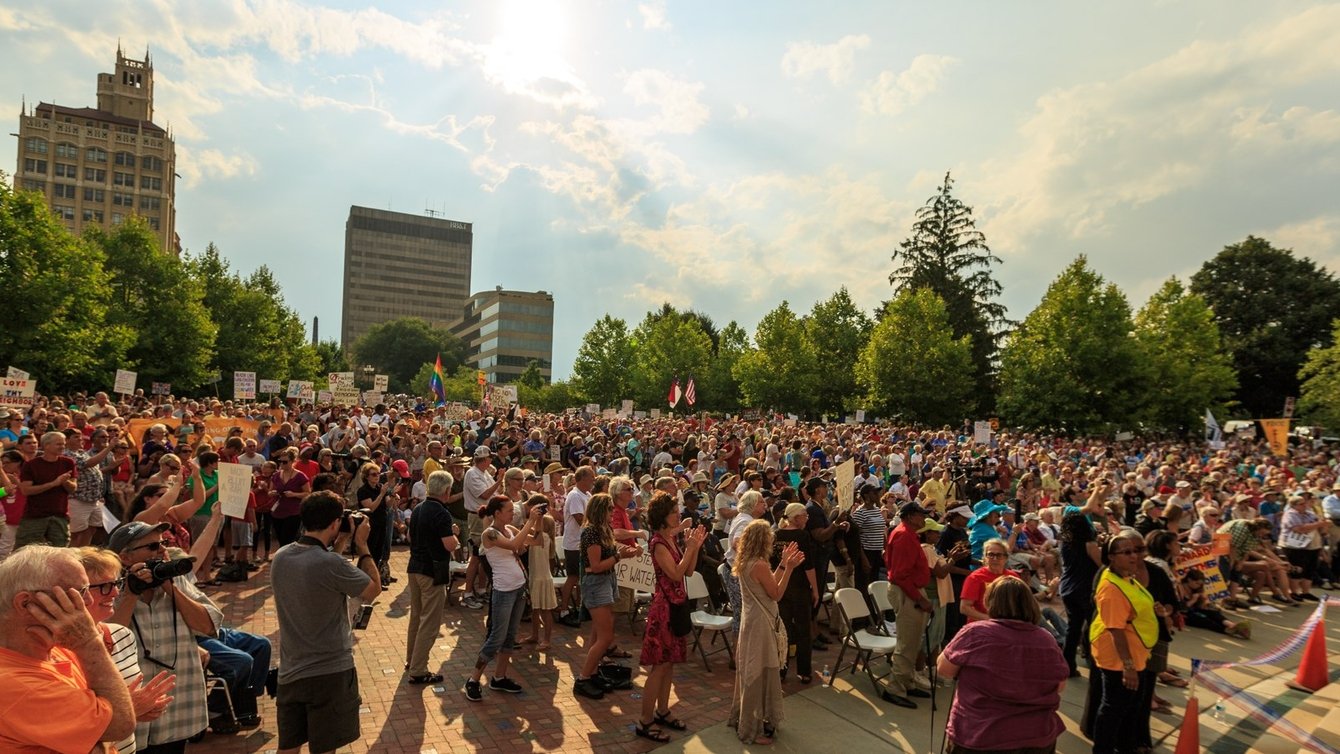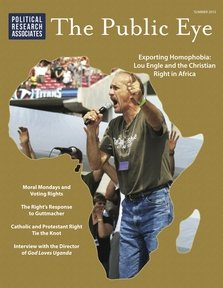On June 25, in a 5-4 decision, the U.S. Supreme Court struck down Section 4(b) of the Voting Rights Act (VRA) of 1965, which established a formula for determining whether states and jurisdictions need permission from the federal government to change their voting procedures. As a result, there is no mechanism to enforce Section 5 of the VRA, which allows the U.S. Department of Justice (DOJ) to freeze and review changes in voting procedures in locales with a history of voter suppression.
The majority of the justices in the case, Shelby County v. Holder, reasoned that the pre-clearance formula was outdated, since Jim Crow-era voting restrictions like the poll tax and literacy test have been abolished. But voting restrictions are far from a relic of the past. Between January 2011 and October 2012, 25 restrictive voter ID laws and two executive actions passed in 19 states, according to a 2012 “Voting Laws Roundup” by the Brennan Center for Justice. Many were struck down by federal courts, including some by the DOJ under the provisions of Section 4(b). Within two days of Section 4(b) being overturned, six states that were at least partly covered under Section 5 moved forward with voter restrictions.
In light of what is at stake, it would be foolish to rely on the dysfunctional U.S. Congress to address this injustice. Nor is it sufficient to rely on legal challenges brought by organizations like the National Association for the Advancement of Colored People (NAACP) and the Southern Poverty Law Center. Though absolutely crucial, they cannot serve all jurisdictions, and the seriousness of this challenge requires a broad-based, popular response.
“It’s time to demonstrate our commitment to free and fair elections by building large-scale, broad-based coalitions at the state level—and taking them to the streets.”
It’s time to demonstrate our commitment to free and fair elections by building large-scale, broad-based coalitions at the state level—and taking them to the streets. This is precisely what the North Carolina Moral Monday movement, guided by the NC-NAACP, has been doing since April. All told, tens of thousands have flocked to the General Assembly building in Raleigh on Monday afternoons, protesting the extreme policies of the Republican-dominated General Assembly. Because of gerrymandering, nine of North Carolina’s 13 U.S. Representatives are Republicans, though the state’s voters are split almost evenly between the two parties.
The weekly protests top 3,000 participants. About 1,000 peaceful demonstrators have been arrested (as of late July). To make this possible, the NC-NAACP spearheaded a coalition of 150 progressive and/or non-partisan organizations that have come together to defend equal protection for all. In addition to traditional civil-rights organizations, the coalition includes groups with concerns as varied as reproductive justice, economic inequality, education, labor rights, immigration reform, criminal-justice reform, and faith-based social justice.
Protesters have made strong gains in reaching out to residents. The Republican-led legislative body no longer enjoys majority support, even within its own party, and the General Assembly’s approval rate has fallen to just 20 percent, according to a mid-July poll by Public Policy Polling.
“With so much authority ceded to states, people who value free and fair elections must localize efforts, cast voting rights as foundational, and embrace broad inclusivity.”
The next goal is to provide avenues for citizens throughout the state to take part in the ongoing uprising. It will be nearly a decade before the next federally-mandated congressional redistricting (the process of redrawing legislative boundaries, which happens after every U.S. Census). In the meantime, the decline in popular support for Republican leadership means that the GOP has more incentive than ever to rig elections to favor Republican candidates. In late July, the North Carolina General Assembly began pursuing that goal by passing legislation that requires voters to show government-issued photo IDs at the polls and ends same-day voter registration. The legislation also weakens campaign donation disclosure laws.
North Carolinians face a long-term battle. The Supreme Court’s ruling means the DOJ will not come to the aid of jurisdictions previously covered under Section 4(b). With so much authority ceded to states, people who value free and fair elections must localize efforts, cast voting rights as foundational, and embrace broad inclusivity.
In North Carolina, this is creating intersectional solidarity rather than diluting the message. Weekly protesters include everyone from disaffected Republicans to members of the Occupy movement. We shouldn’t underestimate the power of the people. As the president of the NC-NAACP, Rev. Dr. William Barber, noted at the July 22 protests, “Our parents already won this fight with less than we have now.” And from here, the path is clear: “Forward together! Not one step back!
“I think we definitely made some voters second guess why they chose to elect some of the people who are behind some of the horrible legislation getting passed.”
Dan Peltier, a Summer 2013 Research and Editorial Intern at PRA, recently interviewed Leigh Bordley about her participation in the “Moral Monday” protests. A lifelong resident of North Carolina, Bordley has been a member of the Durham, NC, school board since 2008. She served as executive director of Partners for Youth from 1998-2011. She has also been a consultant for Literacy South and the director of development for NC Equity. Bordley became active in the protests because she believes that legislation recently passed by the General Assembly doesn’t represent North Carolina’s true values. She attended five protests in Raleigh and was arrested during one of them.
A lot of the media attention has focused on the protests as being heavily based in Christian prayer and teaching, including an article in which you say you “went as a Christian.” What is your take on the Christian connection?
I went as a Christian because I am a liberal. Jesus taught that we should all help people living in poverty. Much of the legislation getting passed by Republicans is harming the poor and not helping to grow our state’s economy. It just made perfect sense to me to go to these protests and pray that the representatives hear our complaints and realize that they don’t speak for the majority of North Carolinians. I was arrested at one of the protests for speaking out against this legislature and was put in jail with the other arrestees. It was fun but not ideal. It was like a big party with no food. There were elderly people and teachers, and we all supported each other. We went to jail for what we believe in and for expressing our opinions.
Even though the General Assembly is now in summer recess, the protests don’t seem to be losing momentum. Would you say that this is a sign of their success?
Success is hard to gauge. We didn’t seem to get through to the Republicans. But I think we definitely made some voters second guess why they chose to elect some of the people who are behind some of the horrible legislation getting passed. That’s why myself and other Forward Together Movement members are continuing the protests and taking them on the road to all of the major cities across the state—so that voters are aware of how they are being represented, and to show that we have endurance and won’t back down.
“Our fight is not as exciting. It can be very discouraging and even disheartening. It certainly doesn’t feel like we’re any further along, and I’m not sure if we’ve made a net gain or that we ever “won” anything.”
The Rev. William J. Barber II, president of the NC-NAACP (which organized the protests), has said that “our parents already won this fight with less than we have now.” What are your thoughts on that?
I grew up in the 1960s, watching the Civil Rights Movement unfold, and a lot of it took place in nearby cities such as Greensboro. The African-American civil rights movement was driven by desperation and excitement, and people thought that real change was coming. While some things have changed, so many others have stayed the same. Today, our fight is not as exciting. It can be very discouraging and even disheartening. It certainly doesn’t feel like we’re any further along, and I’m not sure if we’ve made a net gain or that we ever “won” anything.
This is the first time in more than a century that Republicans have controlled the General Assembly. Do you see North Carolina as a new battleground for the Right, and what do you see as potential future challenges?
This will not be an easy fight. Democrats have suffered from gerrymandering, and this is a backlash against progressives. I feel hopeful about our chances, but we really need to convince voters in these gerrymandered districts that the Republicans are not acting in their best interests. This is our biggest challenge. I have experience in working on the Obama campaign, and I know that this will not be easy—but that with enough help, we can try to make a difference. These protests have been and continue to be extremely well organized, so we have that on our side. I am a lifelong resident of North Carolina and have seen that, historically, the state has been fairly moderate. All of a sudden, it is so far right that I don’t even recognize my own state anymore. I had to get involved and do something, because what is going on inside the General Assembly Building is not the real North Carolina.

